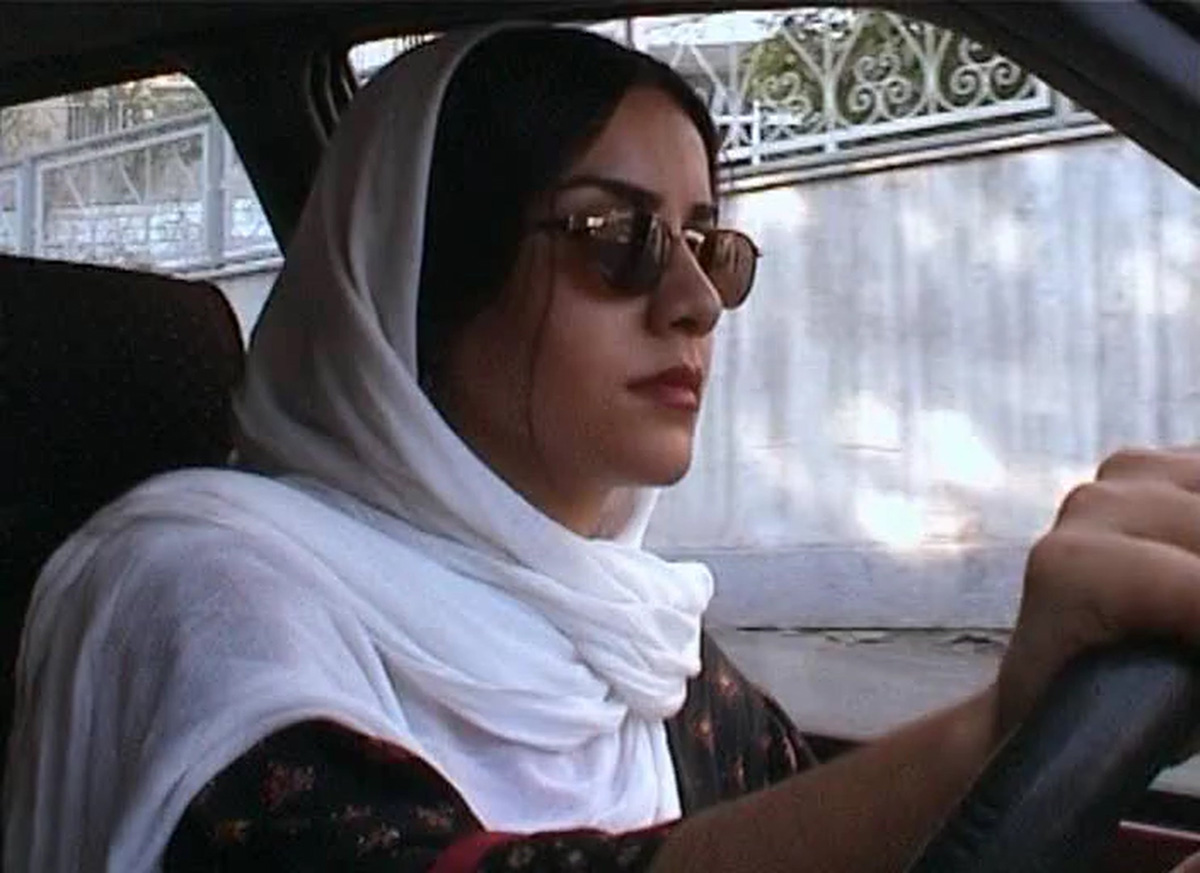
A female taxi driver (Mania Akbari) ferries 10 different passengers around Tehran, Iran — exposing herself to a wide swathe of the city’s populace and shedding light on the plight of women in the country. Among those who set foot inside her cab are a prostitute and an elderly woman on her way to prayer. But there are also a multitude of familiar faces, including a friend who’s broken up with her boyfriend and the driver’s own son, who lashes out at his mother over divorcing his father.
| Reviewed by: Deepagcharan Chandran
Ten (2002) was Abbas Kiarostami’s first feature to be shot digitally—could this have heralded an exploration of a new medium? Certainly, Kiarostami eschews conventional narrative and invents an unclassifiable work due to its conflation between fiction and non-fiction.
Ten takes place inside the realm of a vehicle belonging to an Iranian woman, presenting ten vignettes of passengers who commute with her. The passengers are of varying degrees of association with the driver—some being blood-related while others are strangers. Despite the disparities, amusingly they engage in a manner that offers a rare opportunity for viewers to contemplate the quandaries that women face in contemporary Iranian society.
Conversations are probed and they dispense on the societal norms in Iran—part of a memorable conversation involves the driver’s son being unhappy that she lied to get a divorce—this drives across the idea of how women are treated unfairly in society and must engage in dishonest activities to have their own voice heard (just one of the many interesting stories!).
Kiarostami’s inclination to cast non-professional actors—except for the woman driving the car—pays off as it provides a sense of authenticity to the conversations. Communication felt uncensored as real-life characters are more unlikely to conceal their emotions.
As the impetus of Ten relies closely on the exchange of dialogue, one might argue that this film could have adopted the form of a podcast instead. However, this is where the virtuoso of Kiarostami lies—as these characters are conversing within the vehicle, they are also encountering the traffic externally. There is an interplay between obstacles that these characters encounter in their lives with the ones on the road. The film mirrors their reactions to occurrences be it personal or trivial and how they react to them.
Viewing through diagonal camera angles which are set on the dashboard statically—long takes or cuts are utilised to switch between two passengers as they are speaking—audiences are fully immersed in the journey of its passengers. If avant-garde is your cup of coffee, Ten is the answer to your caffeine addiction! _ Deepag is currently in his final year of studies at Nanyang Technological University. Watching movies is his favourite leisure activity, and he is always on the lookout for innovative voices in the international cinema scene. |
Click Here For More Film Reviews
Do you love writing? Send us a film review and we will feature it on our website. Any film that people can see in the theater or online. Email to: media@scape.sg
Photo: IMDb.com, Inc.

